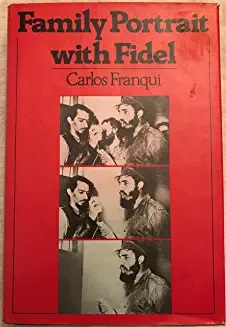
Mikoyan: A Key Visit

An excerpt from the book:
Family Portrait with Fidel
by Carlos Franqui
Random House, New York
Page 66
In the early days of February, Anastas Mikoyan, vice-prime minister of the Soviet Union, came to Cuba. Fidel Castro, Raúl, Che Guevara, and President Dorticós met him at the Havana airport. He was given a huge reception and an extended tour of the island-with Fidel at his side-which lasted for weeks. A major topic was the Soviet Union's purchase of Cuban sugar and our purchase of Russian oil. All of these arrangements were supposed to signify our open relationship with the entire world instead of "just a part of the world." We all thought it was a good thing, an assertion and affirmation of our independence as well as a gesture of good will. While the contracts were important, they did not, at the time, seem so absolutely important. Again, things happened so fast I couldn't grasp the meaning of major events.
There were, of course, many people in Cuba who were resisting any kind of change. Their blind criticism confused the valid critics who saw exactly which way the regime was tending. Some individuals, Boitel and Valladares among them, organized protests; they would soon be jailed. The journalist José Luis Massó went so far as to remind Mikoyan on television of the Soviet invasion of Hungary. As 1960 began to pass, we realized just how important Mikoyan's visit was, how it marked the moment in which Fidel Castro changed his strategy, which was not to seek the support of the Soviet Union in order to counter the United States. The invitation to bring the Soviet exposition from Mexico to Cuba and Mikoyan's visit were timed perfectly by Alexander Alexayev (Russia's representative in Cuba), Fidel, and Raul's henchmen in Havana, Mexico, and Moscow. The result was, as we have already seen, that the Soviets would buy our sugar and we would buy their crude oil. Now, you wouldn't have to be a prophet to figure that Esso and Shell would refuse to refine Russian oil. This was how Fidel's trap was going to work. Later we saw the far-reaching results of Mikoyan's trip; the Soviet Union and the "socialist group" became the buyers of our sugar and our oil supplies. At the time this seemed a reasonable response to the U.S. economic blockade. So imperialist pride worked in Fidel Castro's favor: if Esso and Shell wouldn't refine Russian crude, Cuba would nationalize the refineries.
Return to Timetable - 1960 | Contents: Before/After the Revolution